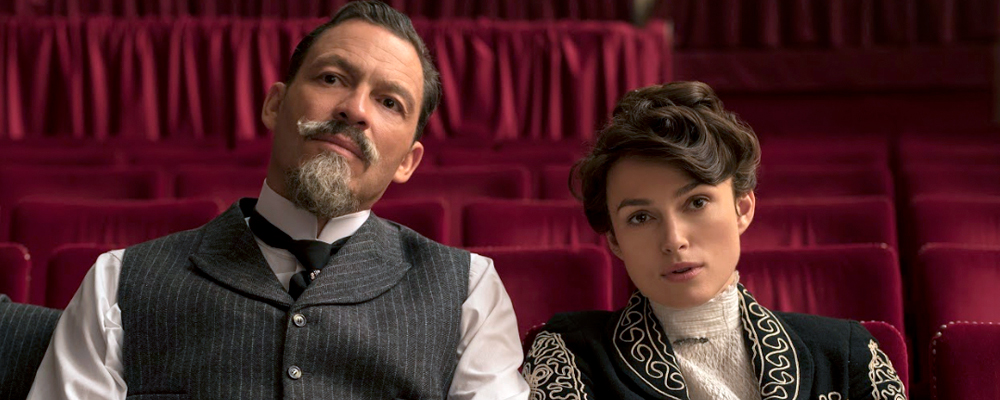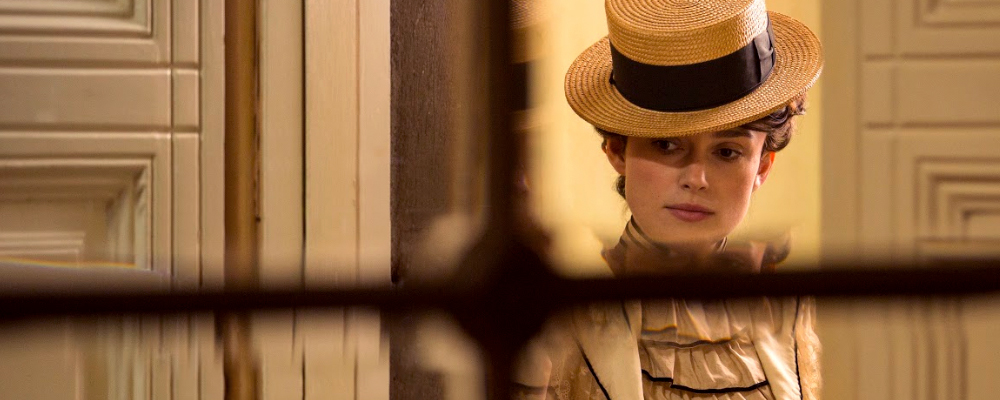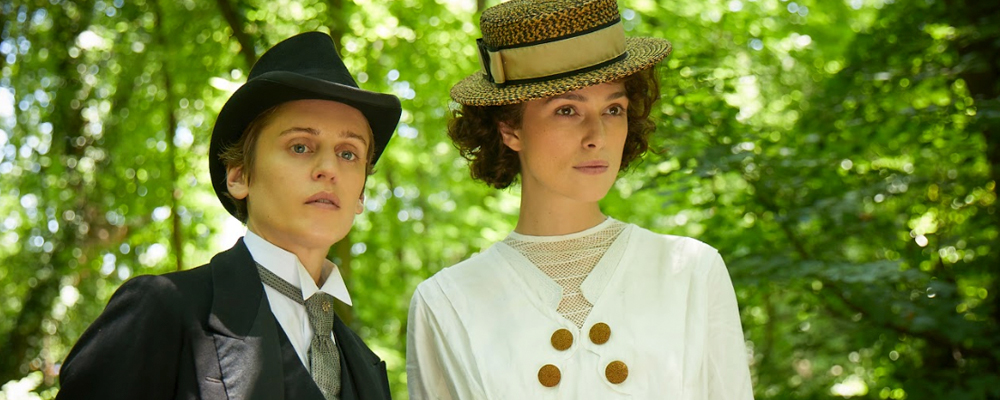Keira Knightley Gives Stunning Performance as Feminist Icon in ‘Colette’
Sandra Miska
With such an impressive body of work under her belt, it’s hard to believe that Keira Knightley doesn’t yet have an Oscar to her name, despite two nominations, but this might change thanks to her performance in her latest film, the biopic “Colette.” Knightley plays the title character, whose full name was Sidonie-Gabrielle Colette, one of the countless woman who were forced to publish under a male pseudonym in order for her work to see the light of day. However, the story of Colette is unique because she didn’t use some made up name, but instead was a ghostwriter for her own husband, Henry Gauthier-Villars (Dominic West), better known personally and professionally as Willy. Under the direction of Wash Westmoreland, who co-wrote the screenplay with his late husband Richard Glatzer and playwright Rebecca Lenkiewicz, Knightley gives a compelling performance as this extraordinary woman, detailing her evolution from a quaint country girl to a sophisticated independent woman.
Like so many relationships that turn toxic, the one between Colette and Willy starts off with a power imbalance. In 1893, At age 20, intelligent and provincial Colette, who is then called Gabrielle, is romanced by Willy, a former army buddy of her father’s, who is not only 14 years her senior, but also an established author. He whisks her off to Paris, and within a year the newlyweds hit their first bump after Colette discovers her husband committing adultery, something he flippantly writes off as a flaw of his sex. West, who has has four years of practice being an adulterer on “The Affair,” is perfectly cast in this role, which allows him to peacock more than he has previously. After momentarily escaping to the country, Colette decides to stick it out with her marriage. Fortunately, she doesn’t becomes another helpless wife confined home by childbearing, as is usually the case in these type of stories, as life take a different turn.
Ironically, it is Willy who first sees potential in Colette and pushes her to write, not because he wants to see her flourish, but because he is in need of a ghostwriter and doesn’t want to pay the rate demanded by the young male writers he has previously employed. With debt collectors banging on their door, Willy employs questionable tactics to get his wife to crank out pages. The resolute is “Claudine at School,” a wildly popular novel based on Colette’s days as a student. This being the time before, television, and most other forms of popular media, “Claudine” becomes a phenomenon that would put “Fifty Shades of Gray” to shame. So many young women identify with Claudine, and Colette’s frustration is palpable as she is unable to own her own work. She does, however, find other outlets, such as engaging in same-sex affairs, again with the encouragement of her supposedly open-minded husband.
Both Colette and Willy are such complex characters, and Knightley is resplendent and natural as Colette comes into her own, doing daring and bold things such as performing live and have an affair with Mathilde “Missy’ de Morny (Denise Gough), a trans man of noble birth. Missy acknowledges that his being born into wealth allows him certain privileges denied to most born female. However, the point is really driven home that no amount of wealth and wit can protect a woman or LGBTQ person from appalling discrimination and mistreatment. In Colette’s case, it is the man who promised to love and protect her who ultimately betrays her in a way she didn’t see coming. Knightley and West have great chemistry, and even after all the infidelities and other thoughtless actions on Willy’s part there’s real affection between the two. This makes it all the more emotionally impactful when he commits one final act of betrayal at the end, allowing Knightley to give a heartbreaking, Oscar-worthy speech.
“Colette” opens Sept. 21 in select theaters.





